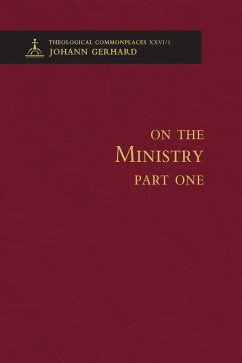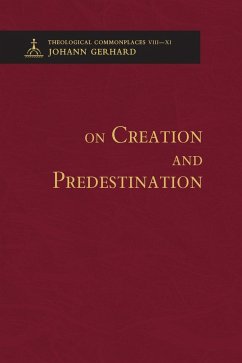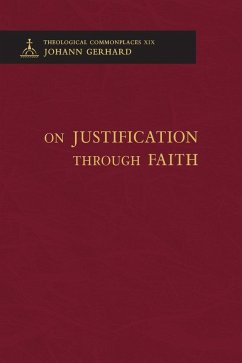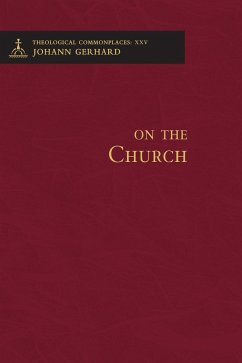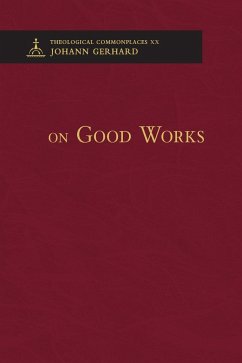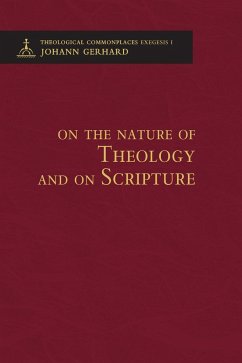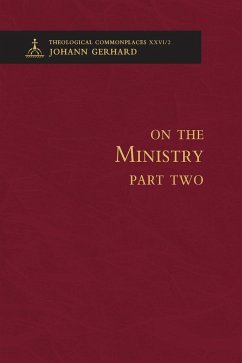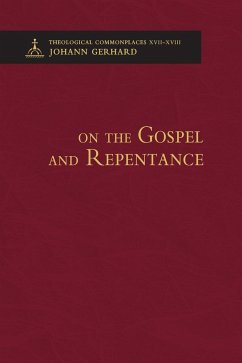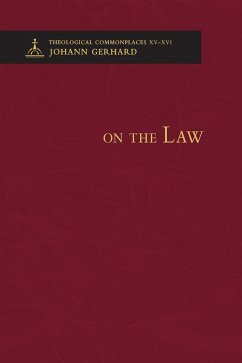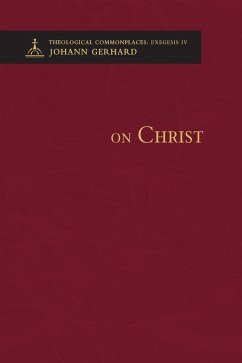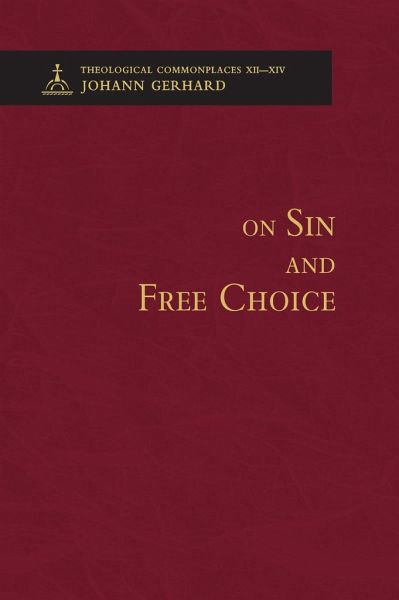
On Sin and Free Choice - Theological Commonplaces
Versandkostenfrei!
Versandfertig in 1-2 Wochen
71,99 €
inkl. MwSt.

PAYBACK Punkte
36 °P sammeln!
About This Volume On Sin and Free Choice consists of three of Johan Gerhard's commonplaces: On Original Sin, On Actual Sin, and On Free Choice On Original Sin establishes the existence of original sin from the testimony of the scriptures. Gerhard identifies original sin not only as the loss and lack of mankind's original righteousness but also a newly corrupt quality that adheres to our nature, while not being rightly called the whole substance of fallen man. On Actual Sin presents Gerhard's understanding of committed sins, caused by mankind's corrupted nature, Satan, and the stumbling blocks ...
About This Volume On Sin and Free Choice consists of three of Johan Gerhard's commonplaces: On Original Sin, On Actual Sin, and On Free Choice On Original Sin establishes the existence of original sin from the testimony of the scriptures. Gerhard identifies original sin not only as the loss and lack of mankind's original righteousness but also a newly corrupt quality that adheres to our nature, while not being rightly called the whole substance of fallen man. On Actual Sin presents Gerhard's understanding of committed sins, caused by mankind's corrupted nature, Satan, and the stumbling blocks of the world. He proposes various divisions of sin such as voluntary and involuntary sins, sins of ignorance or infirmity, and sins of omission versus commission. Regardless of their type, sins are mortal in Gerhard's framework, insofar as all sin brings death, even though Gerhard fervently confesses a scale of severity in sin in terms of earthly reckoning. Gerhard also dedicates large portion of the volume to concupiscence, its nature, and its implications. On Free Choice addresses freedom of the will in two realms, civil and divine. Concerning the civil will, Gerhard supports the notion that day-to-day choices and actions are within the domain of mankind's will. The freedom he denies it the freedom to choose righteousness and turn towards God. Gerhard argues that prior to regeneration, the will of man is bound to sinfulness insofar as it is without faith in and love of God. About This Series The Theological Commonplaces series is the first-ever English translation of Gerhard's monumental Loci Theologici. Gerhard was the premier Lutheran theologian of the early seventeenth century. Combining his profound understanding of evangelical Lutheran theology with a broad interest in ethics and culture, he produced significant works on biblical, doctrinal, pastoral, and devotional theology. Gerhard interacts with the writings of the church fathers, Luther and his contemporaries, and the Catholic and Calvinist theologians of his day. His 17-volume Loci is regarded as the standard compendium of Lutheran orthodoxy, with topics ranging from the proper understanding and interpretation of Scripture to eschatology. Useful for research on Lutheran doctrine, Gerhard's accessible style makes this a must-have on the bookshelf of pastors and professional church workers. Each embossed hardback volume includesthe translation of Gerhard's Loci (originally published from 1610 to 1625) ¿ a glossary of key theological, rhetorical, and philosophical terms ¿ a name index ¿ a Scripture index ¿ a carefully researched works cited list that presents guidance for deciphering the numerous abbreviations of the other titles from which Gerhard quotes.





